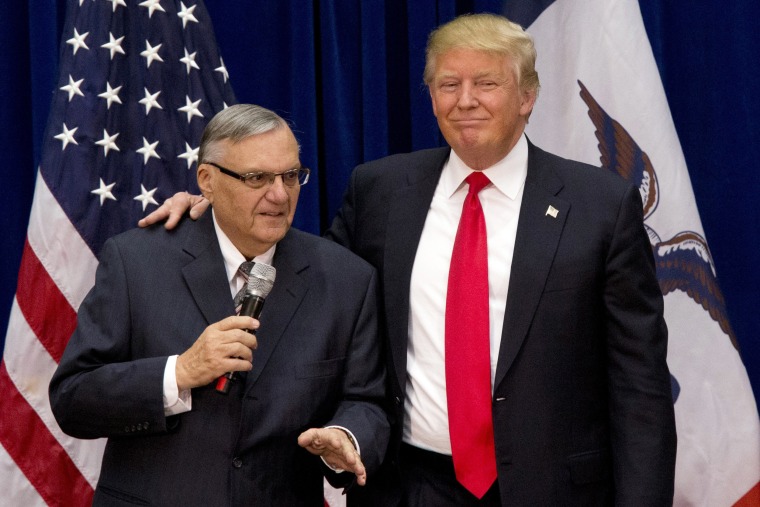President Donald Trump’s pardon last week of ex-Arizona Sheriff Joe Arpaio is his first pardon as president, coming 216 days into his term.
That is earlier than recent presidents have used the pardon power: Barack Obama, George W. Bush and Bill Clinton each waited over 600 days before doing so (682, 699, and 672 days, respectively).
Experts said that longer timeframe reflects two aspects of the modern use of the pardon power:
(1) It is generally subject to a formal review and consultation process with the Department of Justice and the White House (there is a pardon attorney office that processes all requests, and rigorously reviews the case for potential pardons and commutations); and
(2) pardons have proven to be controversial and politically difficult, especially given the perception that well-connected and prominent people are more likely to get them.
If you go further back in history, other presidents did issue pardons as soon as Trump has during his term. Presidents Ronald Reagan and Jimmy Carter, for example, both issued their first pardons within the first 100 days (56 and 82, respectively). And George H.W. Bush used the pardon power after 206 days in office, just shy of Trump's 216 mark.
P.S. Ruckman Jr., a political scientist who studies the pardon power and provided this historical data, told MSNBC that Trump’s pardon comes "relatively early in his term" compared to recent history, but the larger question with pardons is how they are used, not when.
"This isn't a policy pardon, it's more of a stunt," Ruckman said. "All it does is smear the reputation of pardon power, feeds misconception that pardon is for celebrities."
He added, "With 11,000 applications sitting when Trump came into office, the idea that this would be the most important or deserving one is ridiculous."

